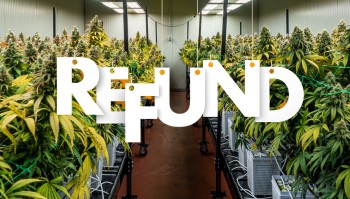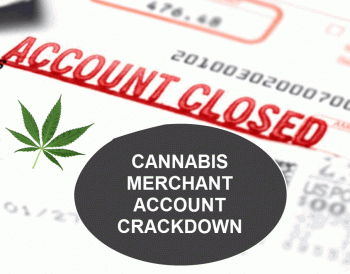
In a decisive 3-1 vote, Massachusetts regulators have given the green light to cannabis transport businesses to streamline their delivery operations by reducing the mandatory two-person team to a single cannbais delivery driver. This potential cost-cutting measure is poised to benefit operators in the industry.
The Massachusetts Cannabis Control Commission (CCC) reached a consensus on Thursday to revise the state's marijuana delivery regulations, relaxing the existing requirement for a two-person delivery team. It's important to note that this rule adjustment is pending implementation and necessitates a formal rewriting of the regulations along with a subsequent vote.
According to reports from Boston TV station WCVB, delivery operators expressed concerns about the financial burden imposed by the existing "two-agent rule" for marijuana deliveries.
In comparison to other states where recreational marijuana is legal, Massachusetts stands out as the sole market mandating the presence of two workers for all delivery situations, as per information disseminated during the Thursday meeting by the CCC.
The legal cannabis landscape in Massachusetts has proven challenging for operators in 2023, marked by low wholesale prices that have contributed to business closures.
Adding to the complexities, the chair of the CCC, Shannon O'Brien, one of the five commissioners, remains suspended from her role.
Industry Cost Relief: Potential Benefits for Cannabis Operators
The Massachusetts Cannabis Control Commission's recent decision to relax the two-person rule for cannabis deliveries carries substantial implications for operators in the industry, particularly in terms of cost relief. Cannabis delivery businesses have long contended with the financial strain imposed by the mandatory requirement for a two-person team. This shift towards permitting a single employee for deliveries reflects a significant stride towards streamlining operations and, consequently, reducing expenses. The potential benefits extend beyond mere operational efficiency, promising a positive economic impact for cannabis operators grappling with the challenges of the evolving regulatory landscape.
In response to the regulatory change, cannabis delivery operators are poised to experience a tangible reduction in labor costs. The requirement for a two-person team not only increased staffing expenses but also added logistical complexities. With the move to allow a single employee on deliveries, businesses stand to benefit from streamlined operations, potentially enhancing their competitiveness in a market where efficiency is paramount. As operators recalibrate their delivery strategies to align with the updated regulations, the cost relief may translate into improved profit margins and overall sustainability.
Moreover, the cost-cutting measure is anticipated to foster a more conducive environment for small and medium-sized cannabis delivery enterprises. These businesses, often more sensitive to operational costs, can leverage the regulatory adjustment to establish more agile and economically viable delivery models. As the industry adapts to this regulatory shift, it signals a broader recognition of the need to balance compliance with practicality, providing operators with the flexibility to navigate the market in a financially sustainable manner.
Unique Regulations: Massachusetts vs. Other Recreational Marijuana Markets
Massachusetts stands out as a unique player in the landscape of legalized recreational marijuana, notably due to its distinctive regulation mandating the presence of two workers for all cannabis deliveries. In comparison to other states where recreational marijuana is legal, the Massachusetts model has been singular in its insistence on a two-person team, irrespective of delivery circumstances. This regulatory divergence has sparked discussions within the cannabis industry, raising questions about the necessity and practicality of such stringent requirements.
As the only market imposing a universal two-person rule, Massachusetts has been an outlier, prompting industry stakeholders to examine the reasons behind this regulatory approach. While the intent may have been to enhance security or compliance, the move to ease this requirement suggests a reconsideration of the balance between regulation and operational efficiency. Understanding how Massachusetts compares to other states in this regard provides valuable insights into the evolution of cannabis regulations across different regions.
Examining the practices of other states reveals a spectrum of approaches to cannabis delivery regulations. Some states prioritize flexibility, allowing businesses to tailor their operations to the specific needs of the market. In contrast, Massachusetts, with its now-relaxed two-person rule, appears to be aligning itself with trends favoring a more adaptable and business-friendly regulatory environment. This shift prompts a broader conversation about standardization in the cannabis industry and the potential impact on interstate commerce as states continue to refine and adapt their regulations.
Challenges in the Massachusetts Cannabis Market in 2023
The cannabis landscape in Massachusetts has proven to be a challenging terrain for operators in 2023, marked by a confluence of factors that have tested the resilience of businesses within the industry. One prominent challenge has been the prevalence of low wholesale prices, exerting considerable pressure on the economic viability of cannabis operations across the state. The impact of these pricing dynamics has been particularly pronounced, contributing significantly to closures within the legal cannabis market.
The low wholesale prices in Massachusetts have forced operators to navigate a delicate balance between maintaining quality products and managing razor-thin profit margins. This challenge has been exacerbated by the additional burden of the now-eased two-person rule for cannabis deliveries, which, until the recent regulatory decision, had added an extra layer of complexity and cost to operations. As businesses grapple with these challenges, the industry is witnessing a period of adaptation and strategic recalibration to ensure sustainability.
Beyond pricing challenges and regulatory shifts, another noteworthy aspect contributing to the complexity of the Massachusetts cannabis market is the suspension of Shannon O'Brien, the chair of the Massachusetts Cannabis Control Commission (CCC). The suspension of a key regulatory figure raises questions about stability and leadership within the oversight body, adding an extra layer of uncertainty for cannabis operators navigating an already intricate regulatory landscape. As the industry contends with these multifaceted challenges, the ability to adapt to evolving market conditions and regulatory adjustments will be paramount for the sustained growth and success of cannabis businesses in Massachusetts.
Bottom Line
Massachusetts' decision to relax the two-person rule for cannabis deliveries represents a pivotal moment for the state's cannabis industry. With the potential for significant cost relief, operators are positioned to benefit from streamlined operations and improved financial sustainability. The move also highlights a broader shift toward balancing regulatory compliance with practicality, acknowledging the evolving needs of the cannabis market. As the industry adapts to these changes, the comparison with other states underscores the importance of flexible and business-friendly regulations. However, amidst the challenges of low wholesale prices and the suspension of key regulatory figures, Massachusetts cannabis businesses face a complex landscape that demands adaptability for continued growth and success. The coming months will be crucial in gauging the full impact of these regulatory adjustments on the state's cannabis market.







